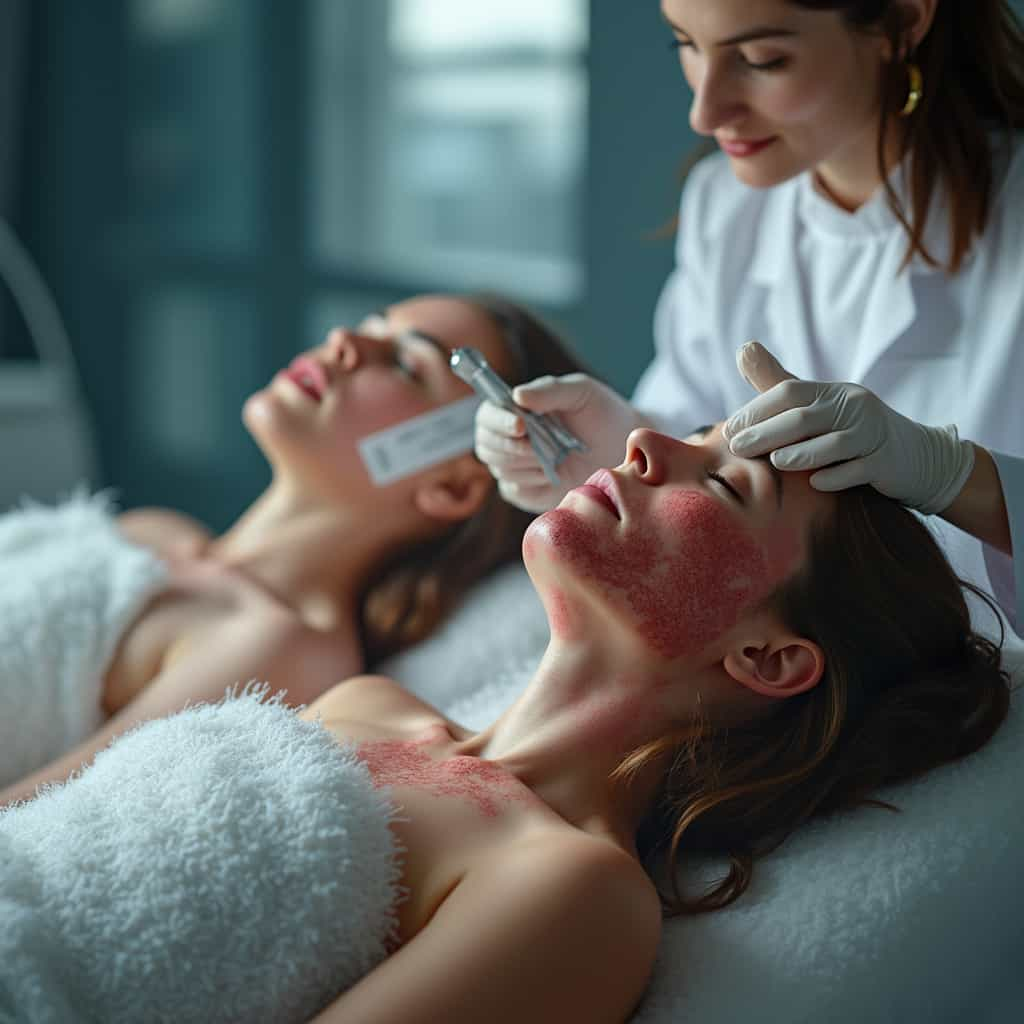Atopic dermatitis, commonly referred to as eczema, is a chronic skin condition marked by inflammation and itchiness. It often appears in childhood but can affect individuals of any age. The condition is believed to be part of the “atopic triad,” which includes allergic rhinitis and asthma. Individuals with atopic dermatitis often experience cycles of flare-ups and remissions.
The symptoms of atopic dermatitis can vary significantly in severity. Typically, the skin becomes dry, itchy, and red. In many cases, patients develop scaly patches, blisters, or even leathery skin due to prolonged scratching. One of the major challenges in treating atopic dermatitis is the condition’s unpredictable nature and the impact it can have on a patient’s quality of life.
In contrast, psoriasis is another chronic skin condition characterized by an overproduction of skin cells. This results in thick, silvery scales and red patches, primarily appearing on the scalp, elbows, and knees. The condition can sometimes affect nails and joints, leading to psoriatic arthritis.
Both atopic dermatitis and psoriasis are believed to involve an overactive immune system. However, the underlying mechanisms differ. Psoriasis is more linked to systemic immune responses, whereas atopic dermatitis is more associated with skin barrier dysfunction.
Geographically, the incidence of atopic dermatitis varies. In developed countries, it affects approximately 10-20% of children and 1-3% of adults. Psoriasis, on the other hand, impacts around 2-3% of the global population. The prevalence of these conditions can be influenced by environmental factors, genetics, and lifestyle.
The treatments for atopic dermatitis traditionally include moisturizing , avoiding irritants, and topical corticosteroids. In recent years, new therapies have emerged, such as topical calcineurin inhibitors and biologics like dupilumab, which target specific pathways in the inflammatory process.
Psoriasis management often involves topical treatments, phototherapy, and systemic medications such as methotrexate. Biologics, which are administered by injection or intravenous infusion, represent a significant advance in treating psoriasis. These drugs target specific parts of the immune system that drive inflammation.
Hair loss, or alopecia, can sometimes be associated with both atopic dermatitis and psoriasis due to the damage on the scalp. Treatments like topical minoxidil and corticosteroids are commonly used, while new therapies involving platelet-rich plasma injections show promise in promoting hair regrowth.
Acne, another common skin condition, albeit different in underlying mechanisms, often requires a multi-faceted treatment approach. This can range from topical retinoids and antibiotics to hormonal therapies and laser treatments. The focus is on reducing oil production and bacterial growth while managing inflammation.
Dental health can also be impacted by skin conditions. Oral health professionals play a vital role in managing these conditions, ensuring that patients maintain a good oral hygiene regimen. Dentists may collaborate with dermatologists for comprehensive care, especially in cases where systemic inflammation is present, impacting gum health.
Recent research is exploring gene therapy and microbiome-targeting treatments for atopic dermatitis. Scientists are investigating how altering the skin’s bacterial composition can affect inflammation. In the realm of psoriasis, genetic studies are revealing potential targets for new drugs.
Expert opinions from dermatologists highlight the importance of personalized treatment plans, given the variability in symptom presentation and severity. Ensuring patients adhere to treatment regimens is crucial in managing these chronic conditions effectively.
Historical anecdotes reveal how famous figures like President Thomas Jefferson and Winston Churchill encountered skin issues, demonstrating that these conditions have long been part of human experience.
There are many myths surrounding skin conditions, such as the belief that they arise from poor hygiene. These misconceptions can lead to stigma and stress for patients, exacerbating symptoms.
Advancements in telemedicine allow patients to access dermatologists remotely, which improves access to care and facilitates ongoing management.
The future of atopic dermatitis and psoriasis treatment lies in precision medicine, where therapies are tailored to the individual based on genetic and molecular profiling.
Overall, understanding the complexities of these skin conditions involves delving into genetic studies, emerging therapies, and new research that challenge traditional approaches and open avenues for effective management.
You may also like
Hair Loss Treatments and Skin Diseases
Hair loss is a global issue affecting millions of men and women worldwide, with distinct patterns and causes between genders. This article delves into current treatments and explores emerging technologies and research in combating hair loss. Additionally, it examines associated skin conditions, including acne, atopic dermatitis, psoriasis, and dental care, outlining the latest in treatment advancements.
Acne: Symptoms, Treatments and Advances in Research
Acne is a common skin condition that affects teenagers and adults worldwide, presenting unique challenges for each group. This article delves into the symptoms and available treatments for acne, alongside exploring emerging studies and innovative approaches in combating this condition. Additionally, it provides insight into related dermatological issues such as hair loss, atopic dermatitis, psoriasis, and advancements in dental care.
Dental Implants and Oral Hygiene: Revolutionary Treatments
This comprehensive article delves into the domain of dental implants and oral hygiene, providing insights into various treatment methods, geographical incidence, and groundbreaking studies on the horizon. Additionally, it explores related health issues such as hair loss, atopic dermatitis, psoriasis, and acne, offering a glimpse into innovative treatments that promise to transform care standards.
Implantes Dentários e Higiene Oral: Tratamentos Revolucionários
Este artigo abrangente se aprofunda no domínio dos implantes dentários e higiene oral, fornecendo insights sobre vários métodos de tratamento, incidência geográfica e estudos inovadores no horizonte. Além disso, ele explora problemas de saúde relacionados, como perda de cabelo, dermatite atópica, psoríase e acne, oferecendo um vislumbre de tratamentos inovadores que prometem transformar os padrões de cuidados.
